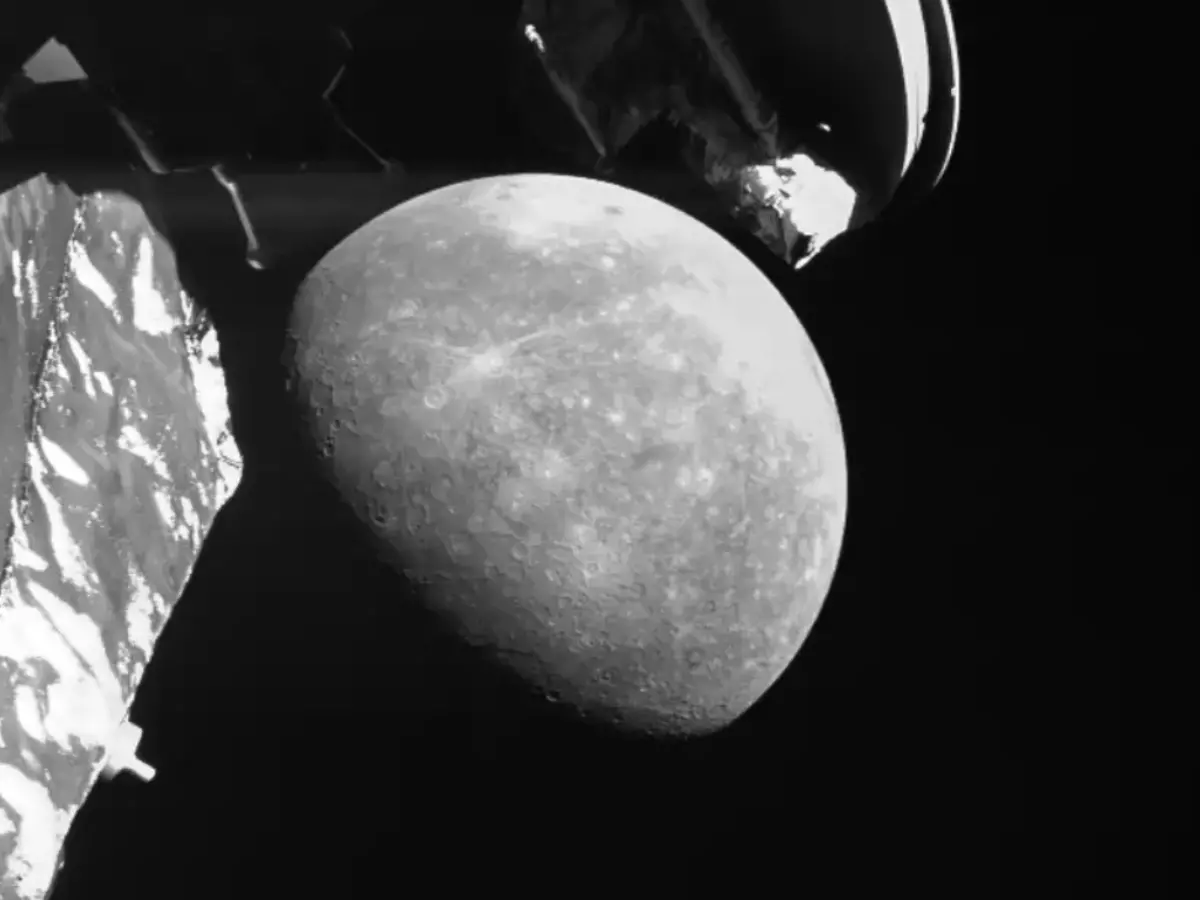Breathtaking Close-Ups Of Mercury Show Solar System's Innermost Planet In Detail
The spacecraft was only 236 kilometres above the surface of Mercury, allowing it to capture such close images of the planet.

Studying Mercury is a tricky exercise owing to its proximity to the Sun. Currently, the BepiColombo mission is studying the fascinating planet, situated closest to our solar system's central star.
Now, the mission has sent back gorgeous new images of Mercury during a flyby. The BepiColombo mission is a collaboration between the European Space Agency (ESA) and the Japan Aerospace Exploration Agency (JAXA) and made its closest approach to Mercury on June 19.
 JAXA/ESA
JAXA/ESA
The spacecraft was only 236 kilometres above the surface of Mercury, allowing it to capture such close images of the planet. BepiColombo's camera 3 clicked multiple images of Mercury that were sent back to Earth overnight.
BepiColombo's close brush with the Sun
Three of these images were released by the ESA on Tuesday. This was the spacecraft's third of six gravity assists, whereby the spacecraft uses Mercury's gravity to slow down as it gets in the position to enter its orbit. This allows it to get really close to the planet.
The spacecraft is essentially designed out of two orbiters that are stacked atop each other - each with its own instruments to study Mercury.
 JAXA/ESA
JAXA/ESA
¡°During our image planning for the flyby we realised this large crater would be in view, but it didn¡¯t yet have a name,¡± David Rothery, a member of the BepiColombo imaging team, said in a statement. "As a result, the crater was assigned the name Manley by the International Astronomical Union in honor of one of the most profound Jamaican artists, Edna Manley."
Also read: Are Ancient Remains Of Mercury Hiding On Earth? Here's Why Scientists Think So
 JAXA/ESA
JAXA/ESA
This crater's basin is indicative of Mercury's volcanic past, scientists say. The probe will continue to study the Manley Crater during its mission.
Now, the spacecraft will only come this close to on September 5, 2024 when it performs its fourth gravity assist. In the time before that, the BepiColombo will fight the Sun's gravity through its "thrust arcs." In August, for a six-week period, the spacecraft will slowly use its electric propulsion system against the Sun's powerful gravitational pull.
 JAXA/ESA
JAXA/ESA
Also read: Mercury Space Mission Offers Rare Glimpse Of Least Explored Planet In Solar System
BepiColombo is only the third spacecraft to reach Mercury, owing to the strong pull of the Sun.
What do you think about these stunning images? Let us know in the comments below. For more in the world of technology and science, keep reading Indiatimes.com.
